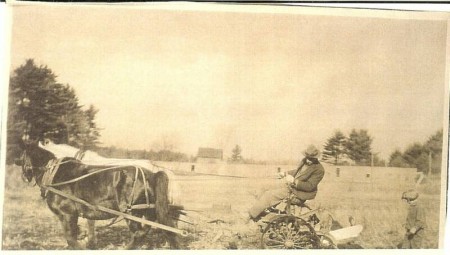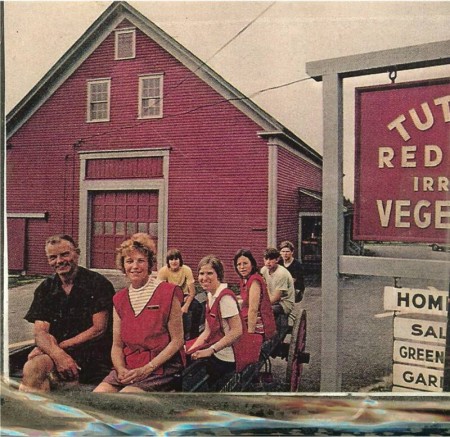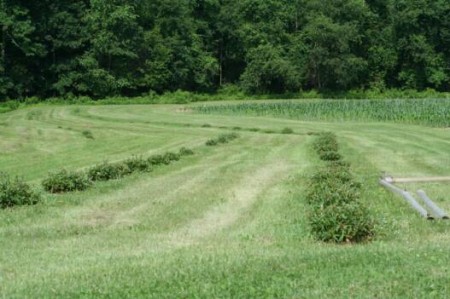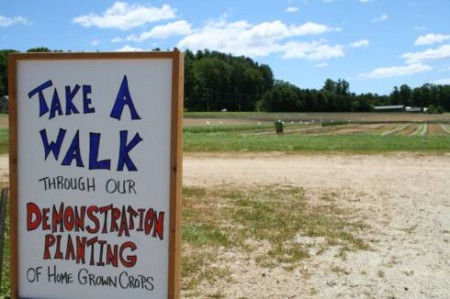I always look forward to reading Verlyn Klinkenborg’s editorial notebook page in the Sunday NY Times. He writes of wind howling at night, gardens and long walks with his dog in country fields. This past sunday he told of the oldest farm in the country going out of business; the  Tuttle Farm near Dover, NH.
This news particularly struck home as I leave my own half acre behind in a move back to the South, having enhanced this already loamy soil and grown bumper crops of strawberries, tomatoes, and asparagus for the past six years. The apple trees and blueberry bushes were going on their 5th year, finally producing well. It can take years to build good soil but it takes very little time to let it go fallow.
Founded in 1632, the Tuttle farm survived and stayed in the same family for almost 400 years. From the Tuttle website we read: The Tuttle Farm of Dover, New Hampshire, is the oldest continually operating family farm in the United States, having passed down through 11 generations from father to son since the 1630’s when John Tuttle arrived in the New World bearing a land grant from King Charles II.”
This was even before William Penn arrived near where I live now in the Brandywine Valley, to establish his own land grant from King Charley.
Klinkenborg reminds us that “Galileo was still publishing, and John Locke was born” in that year. “There were only 10,000 colonists in all of America” at the time. What he stresses though, is that soil is not depleted by these farmers, but built up over the generations. “Farms go out of business for many reasons, but few farms do merely because the soil has failed. That is the miracle of farming. If you care for the soil, it will last — and yield — nearly forever. America is such a young country that we have barely tested that. For most of our history, there has been new land to farm, and we still farm as though there always will be.”
Klinkenborg again: “It is too simple to say, as the Tuttles have, that the recession killed a farm that had survived for nearly 400 years. What killed it was the economic structure of food production. Each year it has become harder for family farms to compete with industrial scale agriculture — heavily subsidized by the government — underselling them at every turn. In a system committed to the health of farms and their integration with local communities, the result would have been different. In 1632, and for many years after, the Tuttle farm was a necessity. In 2010, it is suddenly superfluous, or so we like to pretend.”
The Tuttle Farm, like so many other ‘small farms’ today, is protected by a conservancy easement which will hopefully prevent any further development. But who will take over the business and will they still farm it? As I discovered with my own property in Atlanta, not every future tenant is interested in maintaining antique roses or the soil tilth necessary to grow lush produce. However, from my work with young farmers in this region, I’m hopeful that farms like the Tuttles will see new life in the hands of competent young women and men.





